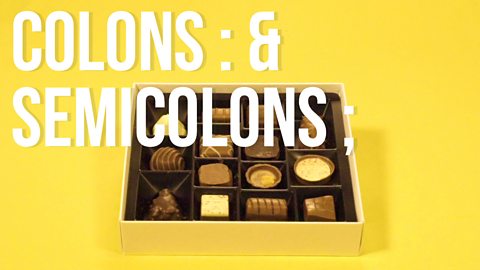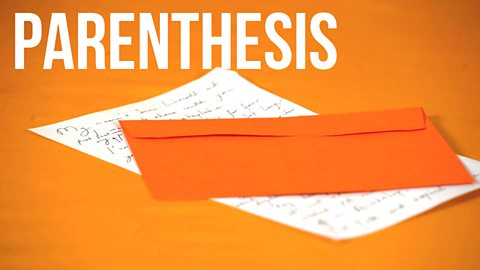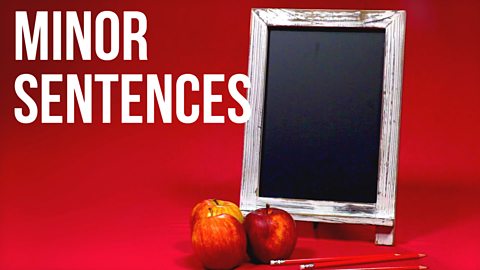Question marks (?) and exclamation marks (!) are punctuation marks that go at the end of a sentence.
This technique should be familiar to you as you will have studied it at 3rd level. Use this guide to revise and check your understanding.
Question marks and exclamation marks go at the end of a sentence and they tell us what type of sentence it is. Using different sentence types helps makes your writing more interesting.
Question marks
A question mark tells us if a sentence is a question and that it needs an answer: 'Would you like a cup of tea?'
Examples
In Jackie Kay's poem Old Tongue the speaker moves from Scotland to England and stops using the Scots language. They say: 'Oh where did all my words go - my old words, my lost words?'
The use of a question highlights how uncertain and lost the speaker feels as she questions how her identity is connected to her language.
Shakespeare's play Romeo and Juliet is about two lovers who cannot be together because of a family feud. In one scene, Juliet stands on her balcony looking out to the garden and says: 'Romeo, Romeo, wherefore art thou Romeo?'
This question emphasises Juliet's longing for Romeo and how uncertain she feels about their future together.
Exclamation marks
An exclamation mark shows excitement, shock or anger. It lets a reader know that they should add emphasis to a sentence: 'This tea is too hot!'
With exclamation marks, ÔÇśless is moreÔÇÖ is a useful approach. They become more effective the less they are used. As a rule of thumb, aim for no more than two exclamation marks in a single piece of writing.
Examples
In Jackie Kay's poem Old Tongue, she uses exclamation marks to emphasise a threat, which might not be understandable for people who don't speak Scots: 'Shut yer geggie or I'll gee you the malkie!'
In Charlotte Bront├ź's novel Jane Eyre, a young orphaned girl called Jane falls in love with her employer Mr Rochester. Later in the novel, Jane confronts Mr Rochester about their feelings for one another. Charlotte Bront├ź uses both question marks and exclamation marks in this quote to emphasise Jane's passion:
'Do you think, because I am poor, obscure, plain, and little, I am soulless and heartless? You think wrong! ÔÇö I have as much soul as you ÔÇö and full as much heart!'
- The question is rhetorical (it doesn't require an answer) and it tells us what Jane believes Mr Rochester thinks of her.
- The exclamation marks show how angry and shocked Jane is over the idea that she might not feel as strongly as Mr Rochester because she is younger or has less money.
More on Understanding, analysing and evaluating
Find out more by working through a topic
- count14 of 18

- count15 of 18

- count16 of 18

- count17 of 18
